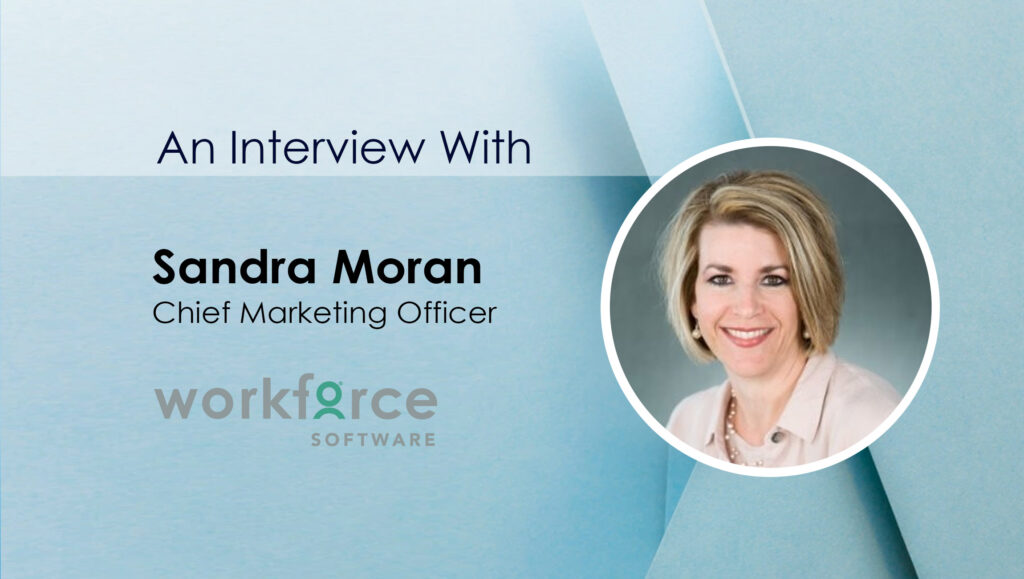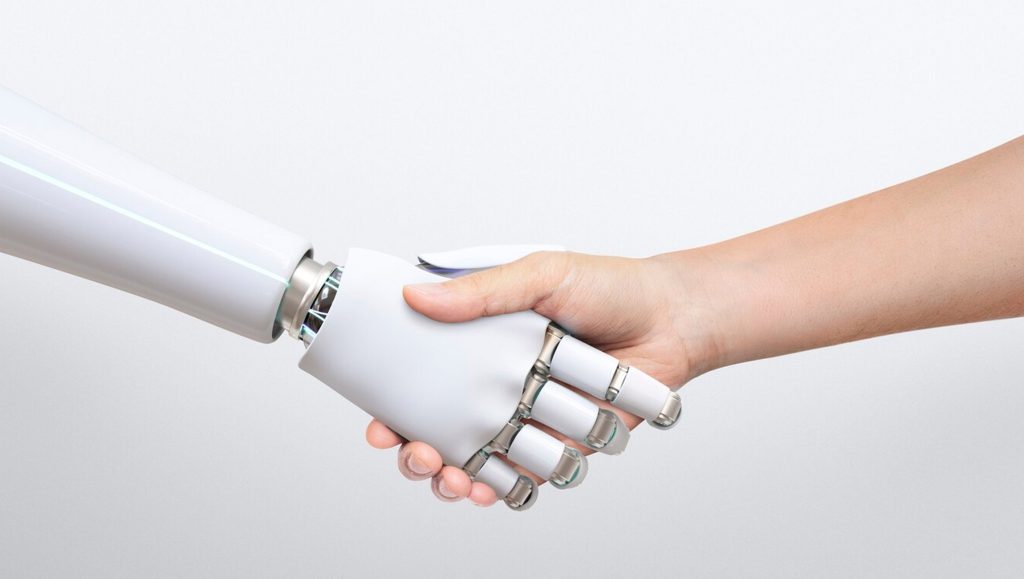Sandra Moran, CMO at Workforce Software suggests ways for retailers to drive salesfloor output using better employee communication means:
_________
Welcome to this SalesTechStar chat Sandra, tell us about yourself…
I am the Chief Marketing Officer at Workforce Software and lead the global marketing organization’s demand creation, brand, and go-to-market strategy. With more than 25 years of experience in the B2B space, I have been enabling software and technology companies to strengthen their brand and accelerate revenue growth through a customer-centric approach.
Having held leadership roles in marketing, sales, new business, and product management, I’ve been able to build many successful, high-performing, global cross-functional teams. Before joining Workforce Software, I served as the CMO at LLamasoft through a successful $1.5B sale to Coupa Software and as the CMO for both SurgeonCheck and INTTRA.
We’d love to dive into Workforce’s recent report on the global retail workforce management study, tell us the key findings/highlights.
Our study with Retail Systems Research (RSR) revealed that retailers who are implementing modern workforce management (WFM) mobile technologies are seeing a boost in employee engagement, satisfaction and performance at every level, as these technologies are allowing them to do their jobs better and more effectively. Key findings include:
- 76% of retailers place a “high value” on mobile automated time and attendance capability as the number one use of mobile technology for the deskless workforce. In today’s world of work, it is crucial that employees have the accessibility and flexibility needed to better manage their personal work schedules while still meeting the needs of the business.
- 90% of the largest retailers assign a “high value” to employee communication portals and 80% see “high value” in real-time employee performance dashboards.
- Retailers see great value in mobile technologies allowing them to use smart team communications to encourage teamwork and provide just-in-time information to local and global staff members. 67% of retailers place a “high value” on peer-peer messaging and collaboration, 61% tout mobile for employee micro trainings happening in the moment they are needed on the salesfloor and see the value in mobile “in context” smart communications being sent through their mobile devices right to frontline retail workers.
Read More: Syncari Named A 2022 Gartner Cool Vendor In RevOps Data Automation
How can a change in tech adoption influence the salesfloor/field output?
The global pandemic has exemplified to retailers that they must rapidly adjust to the ‘never normal’ world of commerce and must consistently enable faster responses for their deskless workforces.
Providing these workers with access to technology not only improves their job performance on a daily basis but allows them to have real-time access to smart business communications, KPIs, sales trends and goals so they can have an immediate impact to the daily business – exactly where their work is happening on the sales floor servicing customers.
What kind of technologies/employee process can enable better retail output given today’s dynamics? What should retailers looking to optimize staff output do more of?
“Mobile” is the underlying theme for technology when it comes to the deskless retail workforce. In order to support better staff and retail output, retailers need to invest in workforce management technologies that can be accessed and communicated through mobile devices. 38% of top retailers surveyed indicated that consumers have more access to product information than their associates can provide in stores, emphasizing that employees being offered the same mobile technology that consumers use is the way forward for the retail industry.
A retailer’s frontline deskless workforce is the most important asset to their business. By leveraging mobile WFM technologies, there will be a better employee experience throughout the entire workforce and a higher retention rate as employees will feel engaged and heard at work. Through mobile technology, they can have the time and autonomy to meet their retail customers on the salesfloor and thoughtfully interact with them, creating meaningful sales connections and customer loyalty for the brand. On the front lines, they can provide the most accurate perspective on changing customer expectations and the barriers to delivering them.
Retailers with mobile WFM technology will also be able to lean more into the unprecedented changes in the retail industry, and quickly equip their workforce to meet fluctuating customer demands. Those that do not encourage their deskless workforce with these critical and necessary mobile technologies and smart communications risk being left behind with below-target sales figures and losses incurred from a lackluster customer experience.
Read More: SalesTechStar Interview With Eric Westerkamp, Chief Executive Officer At CaliberMind
How can improved employee communication benefit the retail workforce on the whole: what would you suggest retailers do more of here?
With the retail workforce working on a shift-based schedule, communication is a critical component to how employees interact and how a retail business functions. Employee communication allow for consistency and teamwork among staff throughout the course of a workday and for mangers to more easily meet their administrative requirements, so they too are more available to employees and customers.
In order to create a seamless work experience, and better communication within the workforce, retailers need to provide mobile technologies that allow for smart team communications.
This will allow for there to be employee communication portals, mobile peer-to-peer messaging and better collaboration. For instance, with employees working different shifts throughout the week there is bound to be something that comes up in their personal schedules that will need them to have to switch shifts with someone or have another employee cover their shift.
Modern WFM systems provide a mobile self-scheduling capability that allows employees to have accessibility and flexibility to better manage their work schedules and communicate with their employers about what they need. This has made a huge difference to managers and mobile technology has caused 61% of the leading global retailers to have more trust in their frontline workers while they are working.
A few views on the top technologies that you feel will become integral to field staff/salesfloor staff over the next few years and why?
The ability to continue to increase the number of data sources used to power manager and employee interactions and optimizations will continue to rise, as well as additional automation for managers. As we come to trust machine learning and automation more, we can further reduce the burden on managers for administrative tasks and continuously improve optimization of team members to ensure stores and distribution centers are staffed properly.
We also see more opportunities for in-the-moment micro-training and peer-to-peer communications enabling the next generation of employees to gain access to information in a format more aligned to their learning styles and delivered at the time they need it most.
Read More: Brand Equity Is Suffering With The Rise Of Cash-Back Apps And More Product Choices– Here’s Why.

WorkForce Software is the first global provider of workforce management solutions with integrated employee experience capabilities. The company’s WorkForce Suite adapts to each organization’s needs—no matter how unique their pay rules, labor regulations, and schedules—while delivering a breakthrough employee experience at the time and place work happens. WorkForce Software is helping some of the world’s most innovative organizations optimize their workforce, protect against compliance risks, and increase employee engagement to unlock new potential for resiliency and optimal performance.
Sandra Moran is CMO at Workforce Software
Missed The Latest Episode of The SalesStar Podcast? Have a quick listen here!
Episode 136: Driving Sales Revenue Despite Recessionary Times with AJ Bruno, Founder and CEO at QuotaPath
Episode 135: B2B Growth Hacks and Best Practices with Andy Champion, VP and General Manager of EMEA at Highspot
Episode 134: Driving Marketing ROI- Tips and Best Practices with Mariana Cogan, CMO at People.ai





















